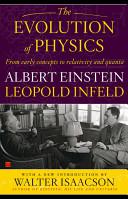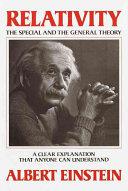Attributed in “The Conflict Between Church And State In The Third Reich”, by S. Parkes Cadman, La Crosse Tribune and Leader-Press (28 October 1934), viewable online on p. 9 of the issue here http://newspaperarchive.com/us/wisconsin/la-crosse/la-crosse-tribune-and-leader-press/1934/10-28/ (double-click the page to zoom). The quote is preceded by “In this connection it is worth quoting in free translation a statement made by Professor Einstein last year to one of my colleagues who has been prominently identified with the Protestant church in its contacts with Germany.” [Emphasis added.] While based on something that Einstein said, Einstein himself stated that the quote was not an accurate record of his words or opinion. After the quote appeared in Time magazine (23 December 1940), p. 38 http://www.time.com/time/magazine/article/0,9171,765103,00.html, a minister in Harbor Springs, Michigan wrote to Einstein to check if the quote was real. Einstein wrote back “It is true that I made a statement which corresponds approximately with the text you quoted. I made this statement during the first years of the Nazi-Regime — much earlier than 1940 — and my expressions were a little more moderate.” (March 1943) http://www.pbs.org/wgbh/roadshow/archive/200706A19.html
In a later letter to Rev. Cornelius Greenway of Brooklyn, who asked if Einstein would write out the statement in his own hand, Einstein was more vehement in his repudiation of the statement (14 November 1950) http://books.google.com/books?id=T5R7JsRRtoIC&pg=PA94: <blockquote><p>The wording of the statement you have quoted is not my own. Shortly after Hitler came to power in Germany I had an oral conversation with a newspaper man about these matters. Since then my remarks have been elaborated and exaggerated nearly beyond recognition. I cannot in good conscience write down the statement you sent me as my own.</p><p> The matter is all the more embarrassing to me because I, like yourself, I am predominantly critical concerning the activities, and especially the political activities, through history of the official clergy. Thus, my former statement, even if reduced to my actual words (which I do not remember in detail) gives a wrong impression of my general attitude.</p></blockquote>
: In his original statement Einstein was probably referring to the actions of the Emergency Covenant of Pastors organized by Martin Niemöller, and the Confessing Church which he and other prominent churchmen such as Karl Barth and Dietrich Bonhoeffer established in opposition to Nazi policies.
: Einstein also made some scathingly negative comments about the behavior of the Church under the Nazi regime (and its behavior towards Jews throughout history) in a 1943 conversation with William Hermanns recorded in Hermanns' book Einstein and the Poet (1983). On p. 63 http://books.google.com/books?id=QXCyjj6T5ZUC&lpg=PP1&pg=PA63#v=onepage&q&f=false Hermanns records him saying "Never in history has violence been so widespread as in Nazi Germany. The concentration camps make the actions of Ghengis Khan look like child's play. But what makes me shudder is that the Church is silent. One doesn't need to be a prophet to say, 'The Catholic Church will pay for this silence.' Dr. Hermanns, you will live to see that there is moral law in the universe. . . .There are cosmic laws, Dr. Hermanns. They cannot be bribed by prayers or incense. What an insult to the principles of creation. But remember, that for God a thousand years is a day. This power maneuver of the Church, these Concordats through the centuries with worldly powers . . . the Church has to pay for it. We live now in a scientific age and in a psychological age. You are a sociologist, aren't you? You know what the Herdenmenschen (men of herd mentality) can do when they are organized and have a leader, especially if he is a spokesmen for the Church. I do not say that the unspeakable crimes of the Church for 2000 years had always the blessings of the Vatican, but it vaccinated its believers with the idea: We have the true God, and the Jews have crucified Him. The Church sowed hate instead of love, though the Ten Commandments state: Thou shalt not kill." And then on p. 64 http://books.google.com/books?id=QXCyjj6T5ZUC&lpg=PP1&pg=PA64#v=onepage&q&f=false: "I'm not a Communist but I can well understand why they destroyed the Church in Russia. All the wrongs come home, as the proverb says. The Church will pay for its dealings with Hitler, and Germany, too." And on p. 65 http://books.google.com/books?id=QXCyjj6T5ZUC&lpg=PP1&pg=PA65#v=onepage&q&f=false: "I don't like to implant in youth the Church's doctrine of a personal God, because that Church has behaved so inhumanely in the past 2000 years. The fear of punishment makes the people march. Consider the hate the Church manifested against the Jews and then against the Muslims, the Crusades with their crimes, the burning stakes of the Inquisition, the tacit consent of Hitler's actions while the Jews and the Poles dug their own graves and were slaughtered. And Hitler is said to have been an alter boy! The truly religious man has no fear of life and no fear of death—and certainly no blind faith; his faith must be in his conscience. . . . I am therefore against all organized religion. Too often in history, men have followed the cry of battle rather than the cry of truth." When Hermanns asked him "Isn't it only human to move along the line of least resistance?", Einstein responded "Yes. It is indeed human, as proved by Cardinal Pacelli, who was behind the Concordat with Hitler. Since when can one make a pact with Christ and Satan at the same time? And he is now the Pope! The moment I hear the word 'religion', my hair stands on end. The Church has always sold itself to those in power, and agreed to any bargain in return for immunity. It would have been fine if the spirit of religion had guided the Church; instead, the Church determined the spirit of religion. Churchmen through the ages have fought political and institutional corruption very little, so long as their own sanctity and church property were preserved."
Misattributed










